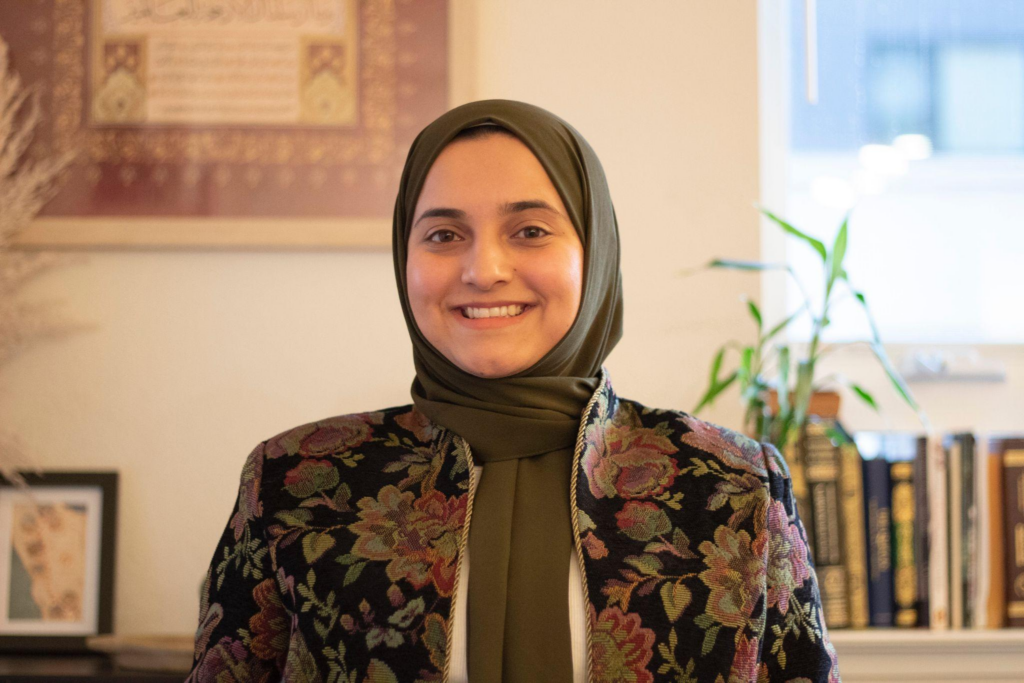Stanford MMHI is a community-driven research and advocacy project seeking to understand and address the unique mental health needs of Muslim students at Stanford University. Launched in 2020 as a project of the Stanford Muslim Mental Health & Islamic Psychology Lab and in partnership with the Markaz Resource Center, the research study and its findings are being utilized to devise evidence-based programming and identify resources at Stanford to ensure the health and wellness of the Muslim community.
Through Maristan, undergraduate and graduate students are provided with the ability to book therapy sessions with Muslim-idenitfying clinicians and attend student support groups based on themes that are important to and affecting students based on requested topics. Through these sessions, students will be able to find comfort confronting difficult issues with the support of their community members.

Hours
Dr. Zahra Murtaza received her BA from University of California, Berkeley and PhD in Clinical-Community Psychology at Georgia State University. She currently works at Children’s Health Council (CHC) in Palo Alto as a Licensed Staff Psychologist (License No. PSY 32913) and primarily serves children, teens, and young adults. She has specialized training in trauma psychology and comprehensive dialectical behavior therapy (DBT). She is currently working with Maristan for MMHI.

Hours
Tasmeer is a University of Toronto alumni and currently pursuing a Masters in Clinical Mental Health Counseling and Marriage and Family Therapy at Palo Alto University. Her passion for providing holistic mental wellness has motivated her professional and educational endeavors. Tasmeer completed a year-long internship with the City of Fremont Youth and Family Services where she received training to conduct therapy with children, adolescents, families, and parents. She also has experience working with international and community-level non-profits that specialize in programs for immigrants, refugees, and survivors of domestic violence. Tasmeer has worked with several organizations in Saudi Arabia and Canada on the importance of providing culturally sensitive mental healthcare for individuals and communities. Tasmeer also conducts research at Palo Alto University focused on improving the training and education opportunities for future Psychotherapists in Training.
You can cancel your session at any time but we kindly request that you cancel at least 24 hours in advance of your session to allow for other students to book that slot.
Unfortunately, at this time, these sessions are only available for currently enrolled Stanford students. If you are a Stanford affiliate and want access to MMHI resources, provide your feedback.
Unfortunately, at this time, these sessions are only available for currently enrolled Stanford graduate and undergraduate students. If you are on a leave and want to access to MMHI services, provide your feedback.
Unfortunately, at this time, we only offer therapy sessions for individuals.
It is vital that you show up to your therapy session early so you can take advantage of the full 50 minute session and maximize your mental health benefit. Make sure to have your Stanford ID card ready to show your therapist, verifying that you are a currently enrolled Stanford student. Ensure that you are in a comfortable and secure place where you can speak freely & keep some water nearby.
No, sign-up information & the contents of your therapy sessions are confidential and private. Markaz Directors, student-staff, or any Stanford staff (e.g. CAPS, Dean of Students Office, etc.) do not have access to this information. This information is only available to Maristan therapists & administrators.
No, appointments are available to sign-up a month in advance. Recurring appointments are not an option.
Yes, of course! In fact, we encourage it. It is important to have mental health check-ins even when you feel fine. Think of it like a physical exam check-up, we still have them even when we are in a healthy state.
At this time, students can only sign-up for virtual therapy appointments.
As many as you would like, although sessions fill up quickly so be sure to book in advance. You can book up to 2 months in advance.
A single session lasts around 50 minutes, but if you would like more time with your therapist, you can book more sessions for the future.
The relationship between client and therapist sometimes takes time to build so you may not immediately click with your therapist. After a few sessions, you can also try out another therapist.